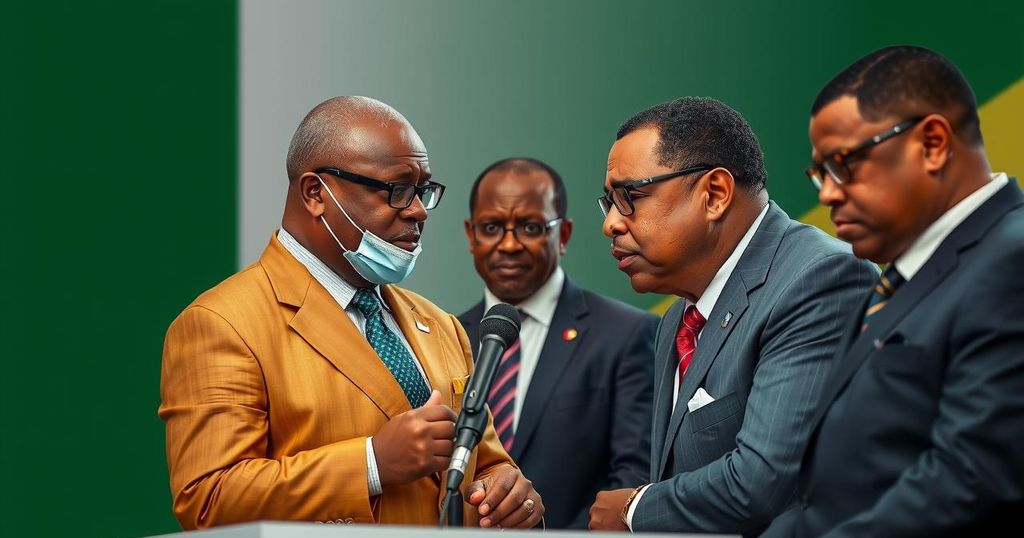Politics
ABD, ADDIS ABABA, AFRICA, DEMOCRACY, EGYPT, ELECTORAL PROCESS, ETHIOPIA, FAI, FAISAL ALI WARABE, HUMAN RIGHTS, KULMIYE, MINISTRY OF FOREIGN AFFAIRS, MOGADISHU, MUSE, MUSE BIHI ABDI, REGIONAL COOPERATION, SOMALIA, SOMALILAND, SOMALILAND NATIONAL ELECTORAL COMMISSION, TRANSITIONAL GOVERNMENT, WADDANI
Leila Ramsay
0 Comments
Ethiopia Acknowledges Somaliland’s Democratic Election Amid Regional Tensions
Ethiopia has recognized Somaliland’s recent presidential election as peaceful and democratic, praising the regional governance structure. The Somaliland National Electoral Commission was acknowledged for conducting free and fair elections. However, Somaliland faces challenges regarding a controversial agreement with Ethiopia, which Somalia denounces, leading to regional tensions.
Ethiopia has officially recognized the recent presidential election in Somaliland, a self-declared independent region of Somalia, marking an important step towards international acknowledgment of its governance. The Ethiopian Ministry of Foreign Affairs commended the citizens of Somaliland for facilitating a “peaceful and democratic election,” emphasizing the role of the Somaliland National Electoral Commission (NEC) in ensuring “free and fair elections”. As the first nation to acknowledge the election results, Ethiopia highlighted the impressive administrative capacity of Somaliland’s democratic structures. International observers also praised the NEC for conducting transparent voter registration and candidate nomination processes, further validating the election’s integrity. The incumbent president, Muse Bihi Abdi of the Kulmiye party, contested against Abdirahman Irro from the Waddani party and Faisal Ali Warabe of the UCID, although the official results are still pending. Meanwhile, the NEC has cautioned the electorate against misinformation regarding the electoral process. Despite the election’s significance, Somaliland faces challenges regarding its Memorandum of Understanding with Ethiopia, which has been criticized as “illegal and provocative”. This agreement permits Ethiopia access to a stretch of coastline for a military base and port development in exchange for recognition of Somaliland’s sovereignty. Nevertheless, Somalia’s government denounces this arrangement, asserting Ethiopia’s intent to annex territory and endorsing a defense pact with Egypt in response. This geopolitical backdrop underscores the complexities surrounding Somaliland’s pursuit of recognition and stability within a contested region.
Ethiopia’s recognition of Somaliland’s electoral process highlights the ongoing struggle for international legitimacy within the region. Somaliland, which declared independence from Somalia in the early 1990s, operates a separate governmental system due to historical and political complexities. Despite holding democratic elections, it lacks recognition as a sovereign state from the broader international community, complicating its aspirations for autonomy. Over the past years, relations between Somaliland, Somalia, and Ethiopia have been marked by strategic alliances and tensions, particularly regarding territorial claims and agreements that could reshape political dynamics.
In conclusion, Ethiopia’s acknowledgment of Somaliland’s recent election as peaceful and democratic underscores the region’s ongoing pursuit for recognition as a distinct entity from Somalia. The praises from both Ethiopia and international observers reflect a significant milestone in Somaliland’s governance. However, the challenges posed by the controversial agreement with Ethiopia and Somalia’s retaliatory stance indicate that Somaliland’s quest for stability and recognition remains contentious and complex.
Original Source: www.garoweonline.com




Post Comment